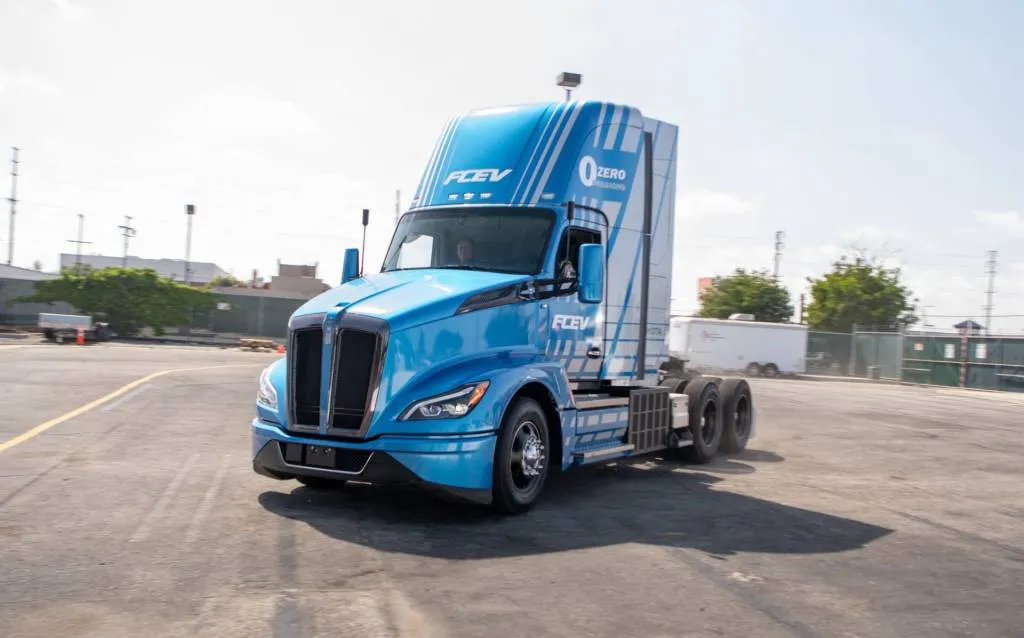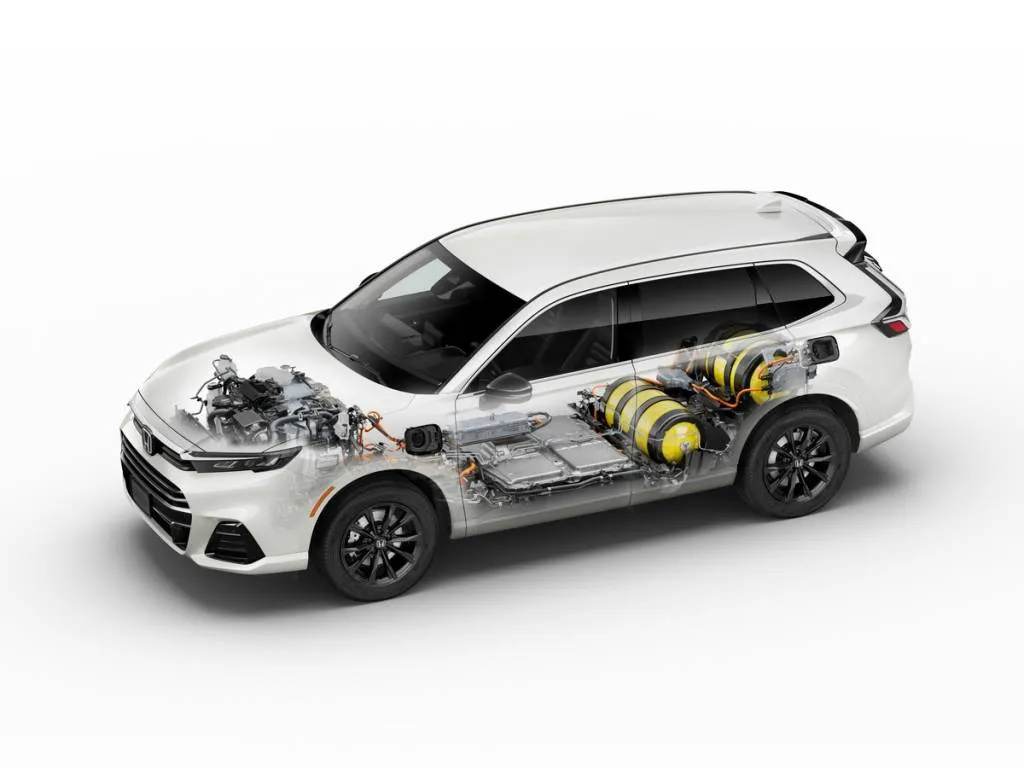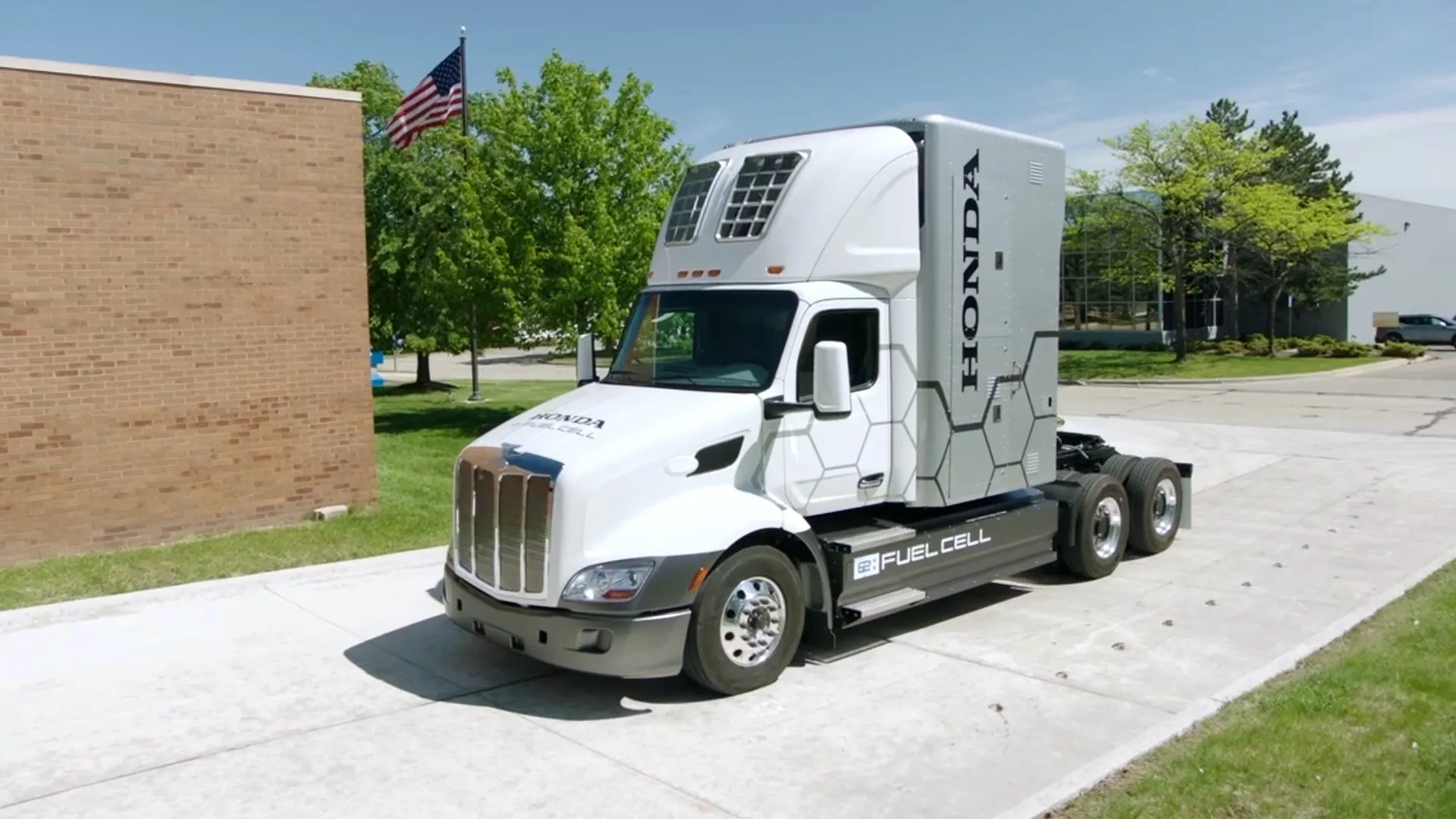Honda on Friday revealed a hydrogen fuel-cell semi in concept form, as it builds out the idea and looks for commercial vehicle partners.
The concept truck, due to debut Monday at the Advanced Clean Transportation (ACT) expo for fleet vehicles, signals “the start of a new demonstration project,” according to Honda. The project aims to produce fuel-cell-powered products for North America.
Honda says it’s seeking collaborations to expand into this area of hydrogen business. The truck appears to be built off a Peterbilt model, but it has the logo of that truck maker blanked out and Honda makes no mention of collaboration with Peterbilt in the project.
The truck project is part of Honda’s plans to push its fuel-cell technology, now shared with GM and modularized, into commercial vehicles, stationary power stations, and construction—as well as industrial situations.
Honda hydrogen module
The Honda truck is a full Class 8 semi and can pull a load of up to 53,580 pounds. Three 80-kw modular fuel-cell stacks (240 kw combined) produce power from 82 kg of hydrogen, and there’s 120 kwh of battery capacity. Honda says that altogether it will result in a 400-mile range at its load capacity.
To compare, Toyota’s latest fuel-cell semi incorporates two of its generation 2.0 fuel-cell stacks from the Toyota Mirai, but here in modular form, producing 160 kw each for a total of 320 kw, with tanks holding nearly 59 kg of hydrogen. It supplements that with 200 kwh of battery capacity. Partner Kenworth lists a range of 450 miles for the truck, but Toyota recently told Green Car Reports that to get to its layout it wanted a truck that would return a target 300 miles no matter what the terrain.

Kenworth-Toyota hydrogen fuel-cell semi prototype. – May 2024
The Hyundai Xcient Fuel Cell semi uses two 95-kw fuel-cell stacks (180 kw combined), with 32 kg of hydrogen, and a battery capacity of about 73 kwh, while its weight capacity is in the same range. Hyundai has revealed its driving range at about 249 miles per charge. Hyundai has talked about a 500-mile version of the Xcient Fuel Cell, but we should note that while both the Toyota and Honda trucks are targeting 70 mph, the Xcient FC’s top speed is listed at just 53 mph.
Importantly, Honda hasn’t yet said whether the fuel-cell truck might feature a charge port as well as a hydrogen filler in final form. Toyota opted not to add one on its fuel-cell semi with Kenworth as it didn’t want its trucks to juggle charging stops and hydrogen stops.

Honda CR-V e:FCEV
That’s not the case with Honda’s new personal-use fuel-cell vehicle, however. In the 2025 Honda CR-V e:FCEV, home charging may actually keep drivers of this hydrogen fuel-cell model from suffering from the range anxiety an expensive and unreliable hydrogen network.
For fleet partners, commercial vehicle situations, and set routes, where fueling stations are built around corporate sustainability and uptime is of the utmost importance, a steady hydrogen supply shouldn’t be a problem—and this serves as another reminder that if, when, and where the model for clean hydrogen makes sense, the vehicles are as ready as ever.



